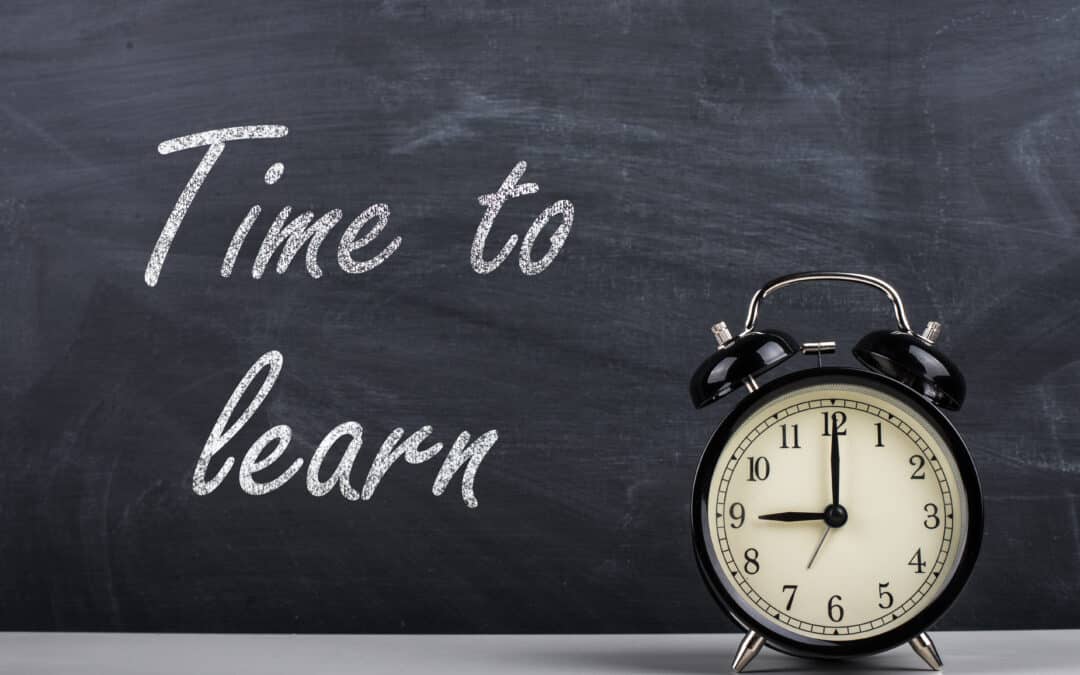In my past life I was an elementary school teacher for over 10 years. One of the things that drew me to the profession was my love of learning in all forms. To me, it doesn’t really matter what the subject matter is — I genuinely enjoy learning all types of new information from people who are undoubtedly smarter than me.
One of the reasons that teaching was a good fit for the lifetime learner in me was that I was (and still am since I keep my teaching certificate active) required to complete 10 credits of classes every five years. This profession forced me to continue my education and learn new skills, theories and challenge ideas I had previously held.
When I was teaching, I naively thought that this continuing education was something that only teachers in public education were required to do, at least initially. As I grew older and was introduced to many other professions, I realized that a large number of jobs are required to complete this education as well (such as those in the healthcare field). What I still failed to grasp, however, is that even if continuing education isn’t compulsory, it remains an essential component of staying relevant in whatever your chosen field of work is.
When I moved into the content marketing and PR world, I realized that while it’s not required that I take any continuing education classes, it is something that I should still be committed to. In this blog post I discuss what a lifetime learner is, why it’s important for content marketers to continue their education, strategies to fit more learning into an already busy schedule and specific content marketing resources that can be helpful.
What Is A Lifetime Learner?
A lifetime learner is someone who seeks the “ongoing, voluntary, and self-motivated pursuit of knowledge for either personal or professional reasons.” The true key here is that the learner must be self-motivated. You cannot force someone to be a lifetime learner, they must intrinsically desire to be one on their own. Without this intrinsic motivation it will be like pulling teeth to encourage someone to better themselves. Additionally, Life Hack discusses 12 habits of people who are dedicated to their own lifelong learning. They state that lifetime learners:
- Read on a daily basis. This simple strategy is one of the best things to do if you want to develop your own habit of lifetime learning. No matter which subject you settle on, reading can open up a wealth of new worlds. One of the best ways to be a lifetime learner in your industry is to read books, articles and blog posts from others in your world. It doesn’t matter what it is or which medium you use to read it; the simple act of reading something is enough.
- Attend courses. Taking a class in person is an excellent way to continue your education, but in the past it wasn’t exactly practical for full-time employees to take time off work to attend a class. While there may have been the option to enroll in a class after hours, family obligations often stood in the way. One positive thing, however, that has come from the pandemic is the increasing ability to attend webinars and classes online from the comfort of your home at your own convenience.
- Actively seek opportunities for growth. Most often learning won’t fall into your lap. You have to be open to it and actively seek ways to fill your knowledge gaps (and you have to be aware these knowledge gaps exist in the first place). If you don’t know where to start, utilize the internet or ask someone close to you in your field. There really is a wide breadth of knowledge right at your fingertips.
- Take care of their bodies. While this one might seem strange at first, your brain functions best when you train all aspects of your body, not just your mind. If being a lifetime learner is important to you, it’s a good idea to stay active and eat as healthy as you can. Proper nutrition and an active lifestyle provide your brain with the fuel it needs to continue learning. This will obviously look different from person to person, but as long as you commit to moving and nourishing your body you will see the benefits.
- Have diverse passions. While most of your learning may have to do with your specific industry, having an open mind and the desire to learn about other things outside of work contributes to being a true lifetime learner. If you have a special interest, take the initiative to learn more about it. Want to learn a new hobby? Watch a YouTube tutorial. The ideas for learning about new things are truly endless.
- Enjoy making progress. Celebrate your progress, even when it’s small. This helps you to stay encouraged and dedicated to learning more about your craft. This could be keeping track of the number of books you’ve read or treating yourself to new supplies for a hobby you’ve committed time to learning. A simple pat on the back can work wonders as well.
- Challenge themselves with specific goals. Without specific goals in mind, it’s hard to dedicate time to continuing your education. Create goals for yourself and encourage yourself along the way. If you struggle with creating goals for yourself, consider making SMART goals.
- Embrace change. As you continue to learn, your views and understanding of your industry and the world around you may change. Accept and embrace that. Change is important for growth. Not only that, but change will happen whether you embrace it or not — it cannot be stopped. It’s better to understand and embrace it than fight against it.
- Believe it’s never too late to start something. Do not limit yourself. Try new things and devote yourself to new understandings no matter your age or situation. Learning should never have an age or time limit.
- Believe their attitude toward improving themselves can be contagious. Your attitude toward being a lifetime learner can encourage other people to do the same. We can help our friends, family and coworkers develop their skills by being excited about and sharing our own learning.
- Leave their comfort zone. Growth isn’t always comfortable. Realize that as you continue to learn you may feel led to make some changes or come across something that challenges your previous thinking. That’s ok and expected; don’t let a little discomfort stop you from reaching your goals.
- Never settle. Don’t stop at “good enough.” Set yourself up with the mindset that there is always something to learn and always a way to do it, you may just have to step outside of the box a little bit to get it done.
Why Is It Important To Be A Lifetime Learner In Content Marketing?
While you may concede that it’s important to some degree to continue learning in whatever field you are in, you may not agree that it’s absolutely necessary in the field of content marketing. This, however, is an incredibly false and short-sighted viewpoint. Why? Simply put, things change and so will your job.
What is relevant and up to date when you go through your education and get your first job will change frequently as you move through your career. Five, 10, 15 years down the line your content marketing job will look significantly different than it did in your first few years.
In order to stay relevant in your field, drive progress and maintain your clients, you must stay on top of the trends and research — not only that, you must strive to stay ahead of them. Being a lifetime learner in content marketing will help you stay on top of changes in keywords, SEO, appropriate blog lengths, technology, algorithms and even new social media platforms and best practices. Change is guaranteed, so you must update your skills to keep up — otherwise you are bound to be left behind.
Strategies For Being A Lifetime Learner While Working Full Time

There are quite a few ways people who are working full time can stay committed to being a lifetime learner.
While it may be easy to agree that you should attempt to remain relevant in your field and be a lifelong learner in both your professional and personal life, devoting the time to do so is easier said than done. Obligations to both your job and your personal life have to come first, so finding the time to do something that isn’t absolutely necessary may be a struggle.
There are some strategies, however, that can significantly help you in your quest for lifetime learning while working full time:
- Set goals for yourself. It will be hard to motivate yourself to learn anything new if you don’t have a specific goal in mind. Think about what in your professional life (or personal life) you’d like to know more about. Maybe consider something that has confused you in the past few months. Alternatively, think about your specific clients and consider what might be useful to them. Once you have specific goals in mind it’ll be easier to find the time and strategies for learning about them.
- Take online classes/webinars/conferences related to your field. While this may take some time, try to engage in some sort of formal learning as often as you can. Look for classes that can be taken asynchronously if you have trouble finding something to fit in your schedule. If you’re able, attend a conference in person. This can have a tremendous impact on your learning and gives you an opportunity to speak to others in your field.
- Listen to podcasts. Podcasts are excellent ways to continue your education and are easy to listen to because you don’t have to finish them all at once. Listen to them while you’re exercising or driving to maximize your time. You may even find that you enjoy listening to them at the end of the day while relaxing on your couch. The beauty of podcasts is that they’re always available whenever you are.
- Ask for guidance. If you’re unclear about what you should be learning, a great strategy is to ask your managers if there is anything you can improve on or what topics are trending in your industry. Not only will this save you from brainstorming on your own, but it will show the leaders in your company that you are motivated to learn and improve your skills.
- Read 1-2 articles a week. Taking the time to read a couple of industry-specific articles a week not only takes a very small amount of time and effort, but they are easy to find on just about any subject. Small amounts of information can lead to great learning in the long run.
- Follow industry-specific social media accounts. Following social media accounts of businesses related to yours can give you a wealth of information. Companies often share interesting articles, blog posts they have written or supply fun facts throughout the week. Don’t be afraid to learn from your competition!
- Enlist your colleagues for help. If you struggle with finding the motivation to branch out and learn new information on your own, ask one of your coworkers if they’d be interested in attending a class together. The old adage of safety in numbers really rings true for many people. This can also help to keep you accountable for completing the goals you have set for yourself.
Specific Resources To Help You Become A Lifetime Learner In Content Marketing
Now that you have a solid plan for how you want to become a lifetime learner, it’s time to start thinking of specific resources that can help you. In terms of content marketing, there are numerous places you can start, but I suggest starting with us here at Three Girls Media. Our marketing and PR specialists are well-educated in all things marketing and are constantly learning new things to share with others.
One of the ways we share our information is in blog posts such as this. We post new blog articles every single Monday that are designed to help businesses such as yours grow their marketing and PR knowledge.
Another way that we like to share information is in our social media posts on a variety of different platforms. By following Three Girls Media on your preferred platform, you’ll be exposed to informative infographics, interesting statistics and helpful blog articles. Not only do we share information of our own, but we share articles from other companies as well.
Two other excellent sources for content marketing information are the blogs from HubSpot and Hootsuite. These websites have a wealth of information on marketing, offer a ton of insightful blog articles and really give a fantastic overview of the current state of content marketing. They are definitely sources to check out in your quest to become a lifetime learner.
One last way to find resources to launch your lifetime learning is by asking those around you what they use to continue their education. You are not functioning on an island — don’t be afraid to ask for help when needed. Not only does this give you the information you need, but it also helps to create a culture of learning for everyone.
Do You Need Help To Become A Lifetime Learner In Your Field?
Whether you already have the information and want to share your expertise with others, or you want help finding information to both learn for yourself and share with your audience, Three Girls Media is here to help. Our team has a wealth of knowledge in marketing and PR and has helped companies in a large variety of industries grow their knowledge base and their brand. Contact us today to schedule a complimentary 30-minute phone consultation with our CEO, Erika Taylor Montgomery.
Special Offer:
Sign up for a complimentary consultation during December and receive an Annual Marketing Planning Guide valued at $475! We offer a 30-minute phone consultation with our CEO, and can answer your questions and discuss your specific marketing needs - no strings attached. Call 408-218-2391 or contact us today to arrange your consultation!



